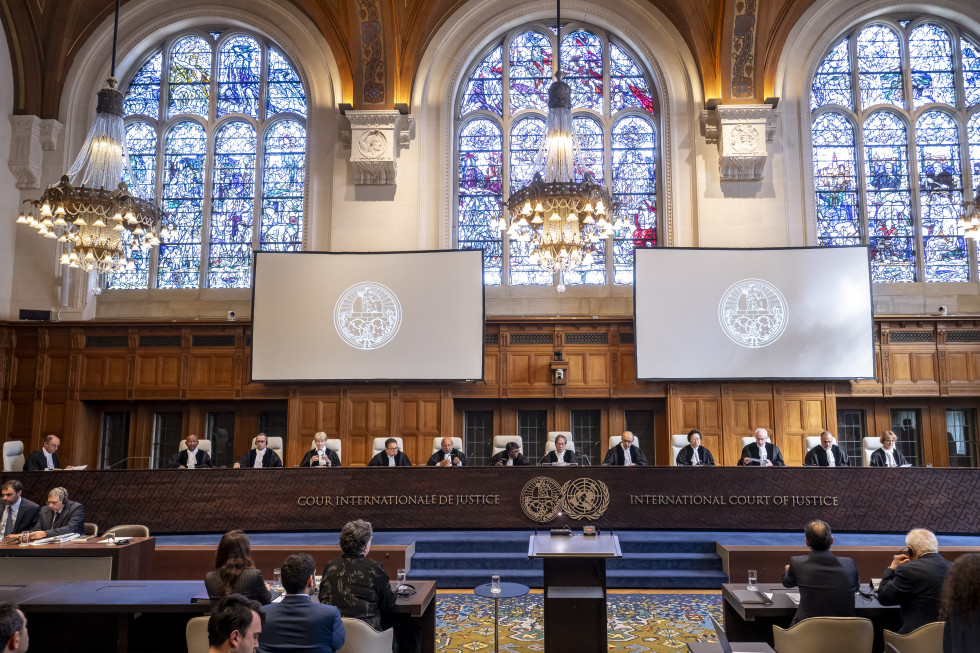Slovenia presents its statement before the International Court of Justice in The Hague
This is Slovenia's statement in the proceedings concerning the issuance of an advisory opinion on the obligations of Israel in relation to the presence and activities of the United Nations, other international organizations and third States in and in relation to the Occupied Palestinian Territory. The proceedings were initiated based on a UN General Assembly resolution adopted on 19 December 2024, and co-sponsored by Slovenia.
The key points of the statement focus on Israel's obligations to ensure and facilitate the uninterrupted provision of essential supplies, basic services and humanitarian and development assistance. These obligations are directly linked to the right of the Palestinian people to self-determination, the respect for human rights and international humanitarian law. The statement also outlines the positions regarding Israel's obligations as a UN member and its responsibility to protect UN personnel and other humanitarian workers.
Dr Marko Rakovec, Director-General of the Directorate for International Law and Protection of Interests at the Ministry of Foreign and European Affairs of the Republic of Slovenia, stated before the Court: ''The terrorist attack by Hamas on 7 October 2023, while an extremely reprehensible act, does not give Israel the right to halt the delivery of humanitarian aid to the Palestinian people. Israel does not possess sovereign rights over the Occupied Palestinian Territory and is unconditionally bound by international human rights law and international humanitarian law to provide, within the territory under its control, essential supplies, basic services and humanitarian and development assistance to the people residing there".
''Israel must ensure and facilitate the unimpeded delivery, by third parties, of essential supplies, services and humanitarian and development assistance to the people in the Occupied Palestinian Territory. This includes the work of the United Nations Relief and Works Agency for Palestine Refugees in the Near East (UNRWA), which remains the cornerstone of humanitarian and development assistance in the Occupied Palestinian Territory, as it is the only agency capable of coordinating the delivery of such aid," he added.
Dr Daniel Müller, an international law expert representing Slovenia in the proceedings, presented Israel's obligations as a UN member and its responsibilities under international law to protect UN personnel and other humanitarian workers. He emphasised: ''Israel, as a UN Member State, and in accordance with the obligations it has undertaken without reservation, has the duty to assist the UN, and particularly UNRWA, its operational arm on the ground, in the full implementation of its mandate. It cannot circumvent its international obligations to the UN and its organs, agencies and offices through legislative acts that simply ban the operation of UNRWA within the territory of the State of Israel.''
"The purpose of these obligations is to ensure the safety and protection of those who work in the service of the international community, and they are firmly anchored in international law. Yet they remain largely unfulfilled in the Occupied Palestinian Territory, where such humanitarian assistance is more critical than ever,'' he concluded.
During the public hearings on the request for an advisory opinion, forty States and four international organisations presented oral statements, with the majority asserting that Israel has an international obligation to honour its commitments under human rights law and international humanitarian law, as well as its responsibilities as a UN member. Only the United States and Hungary expressed concern about the ICJ's competence to issue an advisory opinion, primarily stressing Israel's right to self-defence in the aftermath of the terrorist attack in October 2023.


